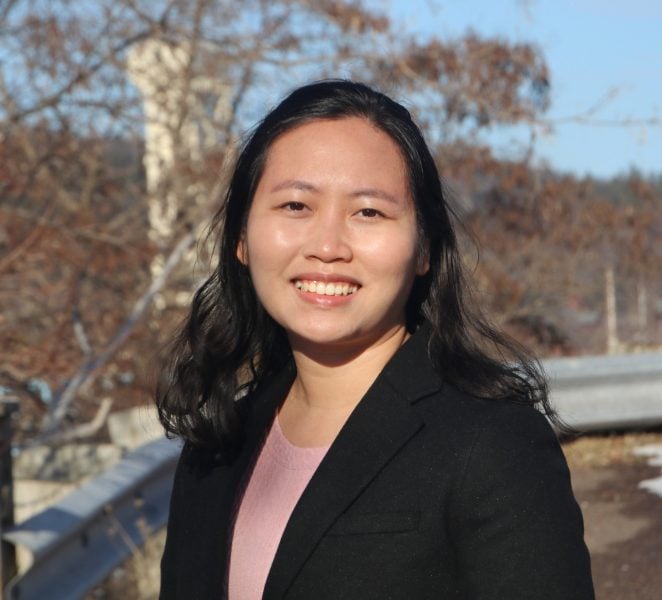
“Growing up in Vietnam, I learned early on that forests are more than just collections of trees. They are living systems that sustain communities, hold cultural knowledge, and provide resilience in the changing climate. This understanding shaped my path and brought me to Michigan Technological University’s College of Forest Resources and Environmental Science, where I have spent the past four years pursuing a PhD in Forest Science.
My dissertation examines how bridging Traditional Ecological Knowledge with Western Science can enhance forest ecosystem resilience and community well-being in the face of climate change. In partnership with the Keweenaw Bay Indian Community, I have had the opportunity to learn from Ojibwe knowledge holders while contributing to community-directed research that centers Indigenous sovereignty and reciprocal collaboration.
During my time at Michigan Tech, I have been honored to serve as a research assistant, teaching assistant, and a mentor to eight graduate and undergraduate students in research design and academic writing. These experiences have deepened my commitment to fostering inclusive academic spaces where diverse knowledge systems are recognized and respected.
I am deeply grateful to the Graduate School and the Dean’s Advisory Panel for awarding me the Finishing Fellowship, which provides vital support as I complete my PhD this fall. My heartfelt thanks go to my wonderful co-advisors, Dr. Chelsea Schelly and Dr. Valoree Gagnon. I am so lucky to have you as my advisors. I am equally grateful to the Keweenaw Bay Indian Community Natural Resources and Forestry Departments for their partnership and trust in this collaborative work. I would like to extend my thanks to my committee members, my collaborators, the faculty and staff of College of Forest Resources and Environmental Science, the Institute for Policy, Ethics, and Culture, the Tribal Landscape System, the Ecosystem Science Center, the Great Lakes Research Center, and the Graduate Student Government for their support throughout my degree. ”